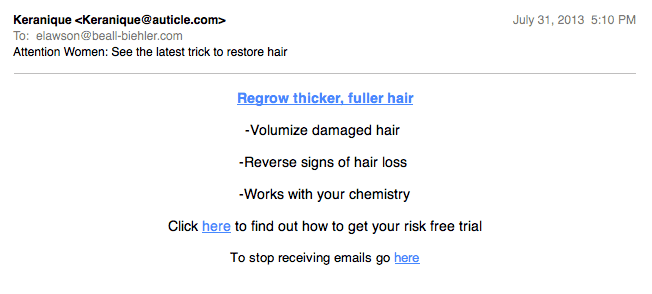A couple of days ago, someone on a (closed) Facebook group I belong to posted a link to a blog post about rape culture.
And, predictably, one of the first comments to that link was along the lines of “this is just another attempt to say that male sexuality is bad.”
It doesn’t even really matter where the linked blog post is (though if you’re interested, it’s here); the “you’re just demonizing men” reaction comes up on any conversation I’ve ever seen about rape culture, as sure as night follows day. And it’s annoying.
It seems to me that if that’s your take-away from discussions about rape culture, you aren’t paying attention.
Male sexuality is not inherently evil, and acknowledging that rape culture is a thing isn’t the same as “demonizing male sexuality.” This seems obvious to me, yet it’s a persistent trope: saying that we have a culture that normalizes, trivializes, and to a large extent even excuses sexual violence is conflated with demonizing male sexuality, as if, I don’t know, male sexuality were somehow inextricably tied to rape or something.
I personally have never met any women who believe that male sexuality is tied to rape, though I keep hearing from other men about that’s what “feminists think”.
When I see a trope become that deeply embedded in a conversation about something, I tend to wonder who it benefits. I definitely think there are men who benefit from this trope. There are some men who want to conflate “discussing the cultural component of sexual violence” with “demonizing all male sexuality.” These men want you to read articles like the blog post that led to all this and respond with “you’re saying men are evil! You’re saying all men are rapists!” That’s the interpretation they want you to have.
There are two kinds of men who want you to have that response: rapists, and men who want power over women.
Not all men are rapists.
There is, for some people, a knee-jerk response to any conversation about rape culture that goes “You just think all men are rapists!” That isn’t what this (and articles like it) say. What they say is that women have to act like all men are potentially rapists, because rapists don’t wear a special hat or have a special handshake or anything.
A strange man is probably not a rapist, but he might be. Since there’s no telltale signal that lets you tell a rapist from a not-rapist, women have to assume that a stranger could potentially be a rapist, simply out of self-preservation. A common analogy here is that not every strange dog will bite you, but it’s usually a good idea not to approach every strange dog you see with reckless abandon–because some of them might bite you, and you have no way of telling which.
Rapists and men who want power over women are quite pleased when people deflect conversations about rape culture with “you’re just saying male sexuality is evil,” because it shuts down conversation about the reality of rape culture…and that suits them just fine. It allows things to continue on exactly as they are–which is to say, allows society to continue blaming victims of rape for their own attacks (“did you see what she was wearing??!), allows rape victims who come forward to continue being disbelieved, allows the courts to continue under-prosecuting rape.
All of this serves the needs of men who rape and men who want to control women, and the only side effect (other than the fact that, y’know, women are marginalized) is that some men are treated like they might possibly be a rapist.
You’re a guy, and you don’t like it? You don’t like the idea that women who don’t know you might respond as though you are a potential rapist, even though that’s something you would never, ever, do? Do something about it! Do something to make our society less welcoming to rapists. Don’t trivialize rape. Don’t whine “but what about false accusations?” when women talk about how claims of rape are rarely taken seriously. Don’t treat tape as a punch line.
Look, this is not rocket science. If you’re a guy, you have a disproportionate amount of power, even if you personally don’t feel like it’s true. It’s not enough to say “Well, I’m not a rapist, and I don’t trivialize rape, so I don’t like it when women treat me like I might be a rapist!” You have to do more. You have to stand up to the people around you who do trivialize rape. You have to stand up to people who are rapists–yes, I’m talking to you, and yes, statistically, unless you live as a hermit in a one-room cabin in Montana you probably know at least one rapist in your social circle. Even if you don’t know who he is.
You don’t like the implications of discussing rape culture? Don’t dismiss those discussions; that doesn’t serve anyone except rapists. Do something about it.
Like this:
Like Loading...




